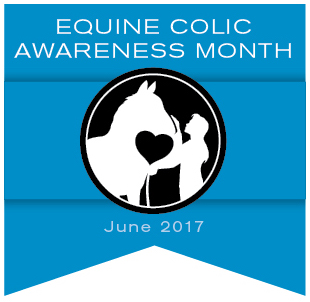The horse evolved to be a grazing, herd animal, eating slowly about 18 hours/day. Its natural diet is forage (grass, leaves, bark), which ferments in the cecum laided by “good” bacteria and is absorbed in the colon. This is why it is called a “hind gut fermenter”. The horse gets most of its energy by producing Volatile Fatty Acids from this this fermentation.
When we feed just a few large meals a day and include concentrates (grain, sweet feed, processed bagged feed), some of the concentrates may go through to the hindgut undigested, especially when the horse gulps down its grain. And that’s when things could start to go wrong for the horse. Here’s the progression that could likely happen:
- When grain reaches the hind gut, bacteria ferments it into lactic acid. Lactic acid is much more acidic than the energy-rich VFAs. This condition is called hindgut acidosis.
- The acidic environment changes the bacterial population, and compromises the mucosal lining of the colon.
- Sooner or later, colonic ulcers form.
- The ulcers allow the endotoxins (by-products of the bacterial changes) to enter the blood stream.
- When endotoxins enter the bloodstream, the natural response to losing blood is for the vessels to constrict to stop the loss.
- Now there is lessened blood flow to both the colon and the last few feet of the small intestine.
- When blood flow is lessened (and eventually stopped altogether), we have less energy, so less peristalsis (the surging action that moves food along), and eventually whole sections may become “necrotic” or dead tissue.
- Then food blockages could occur, inducing colic.
Usually, they start with impaction colic that the vet can release with mineral oil and a painkiller. All that’s happened is the symptom has been released, and all-too-often colic reoccurs soon after.
Also, horses with severe hindgut acidosis tend to have very flaccid colons, which are then more susceptible to torsions.
All this starts with how what and how you are feeding your horse. Learn more about what you can do to help your horse avoid colic.






